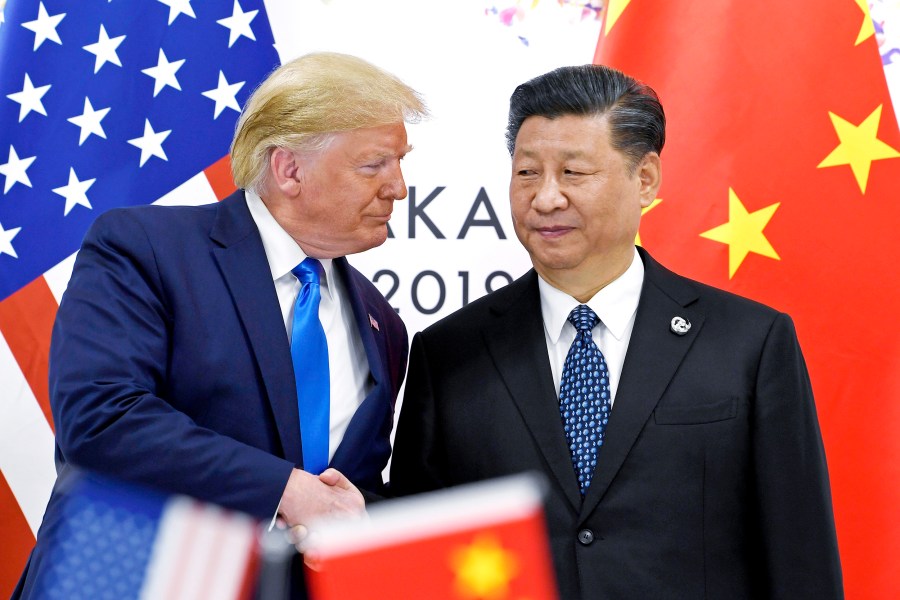The trade deficit with China in the current tariff war is overshadowing another important shortfall — our country’s education deficit with China.
As the Trump administration threatens American universities, guts crucial research programs, slashes education spending and threatens to kill the Department of Education, Chinese leaders are steaming ahead to improve their vast nation’s education standards and outcomes. And China is doing this with a laserlike focus on programs around science, technology, industrial innovation and AI.
As the Trump administration slashes education spending, Chinese leaders are steaming ahead to improve their nation’s education standards and outcomes.
Meanwhile, the U.S. Secretary of Education Linda McMahon confused the abbreviation for artificial intelligence with A-1, the popular steak sauce brand. The contrast could not be more stark, and the consequences should worry all of us.
China graduates almost twice as many STEM-oriented Ph.D.s in science and technology programs than the U.S. — an estimated 77,000 versus 40,000 according to the Center for Security and Emerging Technology. But those numbers don’t tell the whole story. If you exclude international students from that count, then China outpaces the U.S. 3 to 1.
Their advantage doesn’t end with science and technology Ph.D.s. China has also been forging ahead to create stronger undergraduate engineering programs and vocational engineering disciplines to create a massive workforce of factory and innovation, with workers that have mastered specialized hands-on technological, problem solving and math skills.
There is a 2015 video with Apple CEO Tim Cook that has been re-circulating recently that explains why China is so attractive to foreign manufacturers. Here’s the newsflash: It’s not just about cheap labor. In that interview with former Fortune executive editor Adam Lashinsky at the Fortune Global Forum, Cook spells out why China is so important to Apple’s global supply chain for computers, iPads, iPhones and other products. He says, “The popular conception is that companies come to China because of low labor costs…. but the truth is China stopped being the low labor cost country many years ago. That is not the reason to come to China from a supply point of view. The reason is because of the skill and the quantity of skill in one location and the type of skill it is.”
Cook said in that video that “the products we do require really advanced tooling and … the tooling skill is very deep here. In the U.S., you could have a meeting of tooling engineers … and I am not sure you could fill the room. In China, you could fill multiple football fields. It is that vocational expertise is very deep, very very deep here, and I give the education system a lot of credit for continuing to push on that even when others were de-emphasizing vocational.”

He said workers there demonstrate an “intersection of craftsman kind of skill and sophisticated robotics and sort of the computer science world, that intersection that is very rare to find anywhere.”
Trump defends his torrent of tariffs by promising that such economic saber rattling will bring American manufacturing roaring back. However, his team does not seem to have a plan to rebuild a new model of American manufacturing that is based on brains as much as brawn, as well as the ability to keep up with rapid technological and engineering changes that require precise skills and advanced training.
Whether companies are creating washing machines or weather instruments, the manufacturing models that have become so attractive in China (and also increasingly in places like Vietnam and Indonesia) are based on those advanced skills Cook was talking about. That requires prioritizing academics and investing more in education at all levels — pre-K, K-12, vocational programs and higher education. It also requires investing in the government research programs that partner with universities. But Elon Musk’s DOGE brigade is enthusiastically ravaging the agencies and departments that support such partnerships.
Trump has been all bark and no long-term strategy.
Trump has been all bark and no long-term strategy. What’s sad is that America could continue to be the greatest economic global powerhouse. The ingredients for success are here, but Trump and his team seem hell-bent in destroying the educational and research infrastructure that could insure growth and dominance in the economic sphere. It’s like attacking the fuse box with a blow torch and expecting that the lights and the oven and the computers will all keep running.
It just doesn’t make sense.














